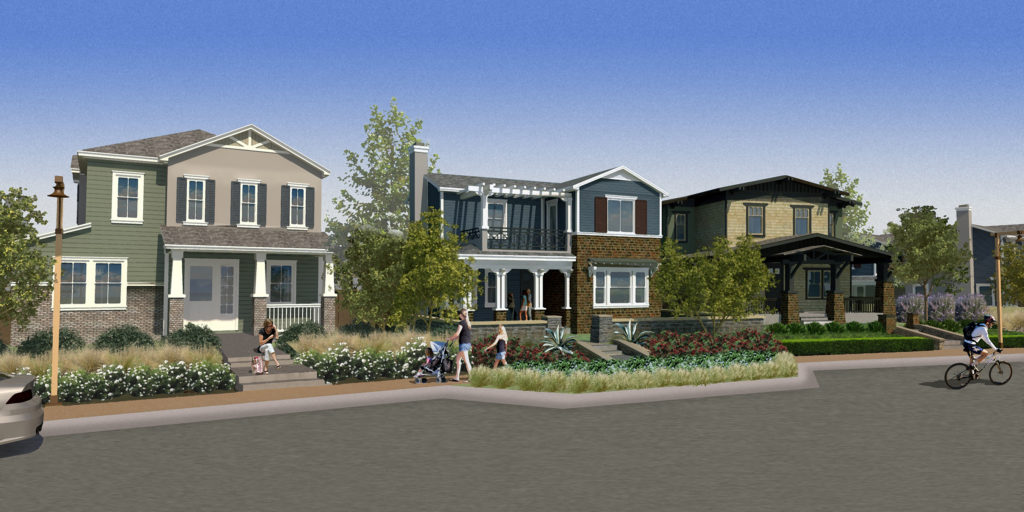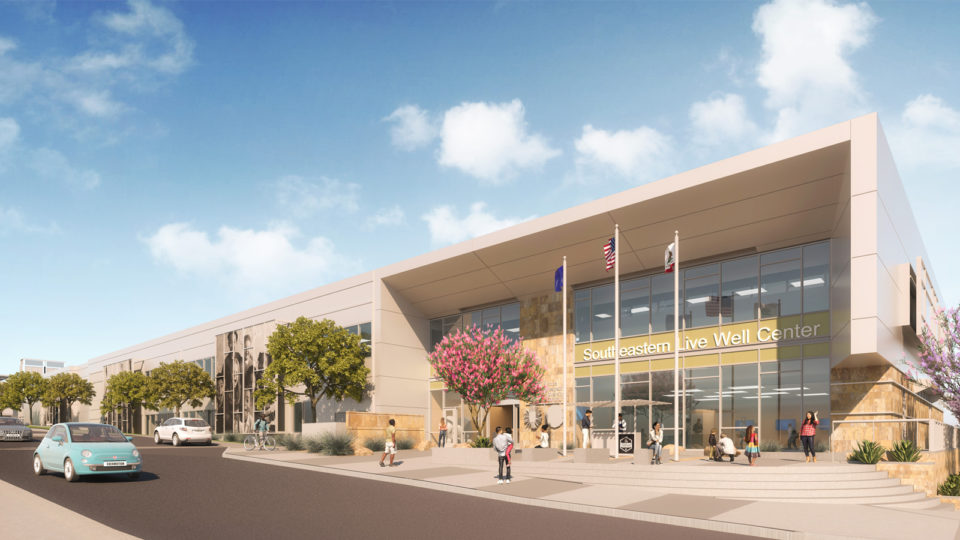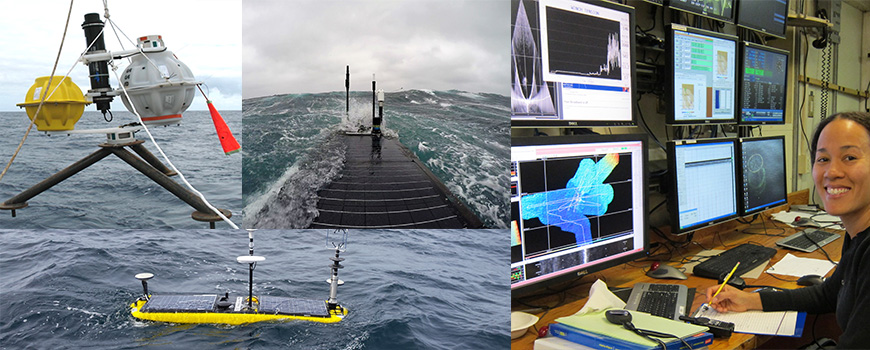Daily Business Report-Nov. 25, 2020
Image via iStock
Research topics to expand as California
passes stem cell measure
By Barbara Feder Ostrov | CalMatters
California’s stem cell research agency was supposed to be winding down its operations right about now, after a 16-year run and hundreds of millions in grants to scientists researching cutting-edge treatments for diabetes, cancer, Alzheimer’s and other diseases.
Instead, the taxpayer-supported California Institute for Regenerative Medicine (CIRM) will get a $5.5 billion reboot after voters earlier this month narrowly passed the Proposition 14 bond measure. The overall cost of the bonds with interest will total about $7.8 billion.
“We’re thrilled that California voters saw fit to continue the work we’ve done,” said Jonathan Thomas, chair of the agency’s governing board. “California has always had a frontier mentality and a love for the cutting edge, and the work that CIRM has done has put it on the very forefront of regenerative medicine.”
Even with California’s economy in a coronavirus-induced tailspin and some scientists arguing that stem cell research no longer needs taxpayer support, Prop. 14 passed with 51 percent of the vote after well-financed supporters poured nearly $21 million into the Yes on 14 campaign. The measure was essentially a rerun of Proposition 71, which California voters approved in 2004 after a since-revoked federal ban on embryonic stem cell research.
The cash infusion is expected to keep the institute running for another 10 to 15 years, although the agency will see some significant changes under Prop. 14.
_______________________________________________
The Daily Business Report will not be published tomorrow and Friday to
celebrate the Thanksgiving holiday. Enjoy the holiday and be safe — the DBR Team
_______________________________________________

Three new builders join Valley Center
master-planned community Park Circle
Homebuilders KB Home, Meritage Homes, and Richmond American Homes have been added to the roster at Park Circle— a new 186-acre, 632-home master-planned community currently under construction in Valley Center. The builders join Shea Homes and Beazer Homes, who are actively building on site. Park Circle will also have a neighborhood of detached rowhomes and duplex homes, named Wildflower, for low- and moderate-income families. It will be built by a local team experienced in for-sale affordable housing.
The neighborhood being built by KB Home will offer personalized, new ranch style homes located on the largest homesites in the community, providing buyers the opportunity to create resort-style backyards and accommodate side-yard parking. The neighborhoods by Meritage Homes and Richmond American Homes will offer a mix of single- and two-story homes in traditional configurations and on lots with sizeable backyards.
Overall, Park Circle’s varied one- and two-story home designs will span from 1,400 to 3,000 square feet with a range of price points anticipated from the high $400,000s to $700,000s. Future residents can enjoy the community’s three private recreation centers, 24,000 square feet of retail space, and a 2.6-acre central park with barbeques, playgrounds, sports courts, bocce ball, and more.
Park Circle’s first model homes are expected to debut in early 2021. To learn more about community offerings and to sign up for updates, visit www.parkcirclelife.com/.
_______________________________________________
City of San Diego wins appeal in undergrounding case
The City of San Diego has prevailed in a court case that could have put an end to the city’s ongoing program to bury utility lines underground. On Nov. 20, the Fourth District Court of Appeal found that the city’s Utility Undergrounding Surcharge, which is paid by ratepayers to SDG&E, is a legally permissible fee. The appellate court’s 62-page published opinion upheld the trial court’s grant of summary judgment in favor of the city, effectively dismissing the suit before it got to trial.
A class-action lawsuit against the city alleged that the utility undergrounding surcharge was not permitted because it was not approved by the voters. Proposition 218, the Right to Vote on Taxes Act, was passed by the California voters in 1996 and generally requires that local governments obtain voter approval prior to imposing new taxes.
The Court of Appeal, however, upheld the original finding of San Diego Superior Court Judge Judith F. Hayes, who confirmed that the utility undergrounding fee was not a tax, and therefore Prop. 218 did not apply.
Had the lawsuit succeeded, it would have essentially stopped the neighborhood portion of the undergrounding program, and forced the city to return more than $200 million collected by SDG&E from ratepayers and paid to the city for the Utilities Undergrounding Program. Much of that money had already been spent on undergrounding projects across the city, and most of the remainder was earmarked for specific neighborhood projects.
_______________________________________________

General Motors drops lawsuit against California
CalMatters
In a signal of how California’s national influence will likely grow under a Biden-Harris administration, General Motors announced Monday that it would no longer support the Trump administration in lawsuits challenging the Golden State’s authority to set its own fuel economy standards. In the stunning — and politically charged — reversal, General Motors said it supports President-elect Joe Biden’s plan to expand zero-emissions cars, CalMatters’ Rachel Becker reports. That has big implications for California, which wants to ban new gas-powered cars by 2035. General Motors also encouraged other car companies fighting California’s stricter fuel emission standards — including Toyota, Fiat Chrysler, Mazda and Mitsubishi — to abandon ongoing litigation.
_______________________________________________
Oceanside wave resort project changes hands
The artificial wave lagoon, 300-room resort hotel, retail stores, offices and up to 700 homes proposed for the 92-acre site of the former Oceanside drive-in theaters and swap meet has a new developer, N4FL Worldwide. N4FL Worldwide, also known as N4FL Development, is a joint venture partner with the former developer, Zephyr Partners.
The site is north of Mission Avenue near the Oceanside airport. About 20 of the 92 acres will be preserved as open space with bike trails and pedestrian paths connecting to the nearby San Luis Rey River trail and the Alex Road skatepark. Oceanside Principal Planner, Sergio Madera, said Tuesday the project appears to be on track under the new ownership.
Read more…
_______________________________________________

Design work on county’s Southeastern
Live Well Center resumes
The County of San Diego, along with PCL Construction Services Inc. and architects Steinberg Hart, are revising the Southeastern Live Well Center project. The new design retains the full array of community services while reducing the amount of space for back-office staff who are now expected to telework.
The size of the public and client areas in the 65,000-square-foot Southeastern Live Well Center will remain the same as in the earlier 80,000-square-foot design.
Because county employees who do not interface with clients will now primarily work from home, this new office model shrinks the workspace and support area requirements originally anticipated. The county has tasked PCL Construction and Steinberg Hart to make the necessary changes without impacting the overall design concept.
Unchanged will be the site layout with its public plaza and entrance near the intersection of Euclid Avenue and Market Street, the exterior façade design with its welcoming public entrance, and the public lobby with its grand stair soaked in daylight from the second story skylights.
Also unchanged are plans for a 4,000 square-foot Conference Center and installation of public art. Other community amenities will include the Meditation and Wellness Garden, connection of Chollas Creek Trail to Market Street, and a coffee cart at the public plaza near Market Street and Euclid Avenue.
The Southeastern Live Well Center is expected to break ground in summer of 2021 and open in the summer of 2023.
_______________________________________________
Report: GSA finalizes transportation
service contract awards to Uber, Lyft
GovCon Wire
The General Services Administration has finalized the award of a potential $810M governmentwide transportation contract to Uber Technologiesand Lyft, Reuters reported.
Both companies can start offering ride-hail services to federal employees and contractors nationwide under the five-year deal, the report said.
Veronica Juarez, a Lyft vice president, told Reuters the award culminates a negotiation process that began nearly four years ago.
GSA sought providers that offer booking capability for on-demand ride services, data analytics for trips and savings, consolidated billing options for customer agencies and accessible vehicles and equivalent assistance for passengers with disabilities.
Charlotte Phelan, assistant commissioner in the travel, transportation and logistics office at GSA’s Federal Acquisition Service, wrote in an April blog post that her team “was able to negotiate discounts of 2-4 percent, comparable with large commercial customers, and waived technology fees charged to use back-office vendor data and reporting capabilities.”
She added the blanket purchase agreement covers the top 50 markets for public-sector staff travel.
_______________________________________________
Antimicrobial soap additive worsens
fatty liver disease in mice
University of California San Diego School of Medicine researchers found evidence that triclosan — an antimicrobial found in many soaps and other household items — worsens fatty liver disease in mice fed a high-fat diet.
The study, published Nov. 23, 2020 in Proceedings of the National Academy of Sciences, also details the molecular mechanisms by which triclosan disrupts metabolism and the gut microbiome, while also stripping away liver cells’ natural protections.
“Triclosan’s increasingly broad use in consumer products presents a risk of liver toxicity for humans,” said Robert H. Tukey, professor in the Department of Pharmacology at UC San Diego School of Medicine. “Our study shows that common factors that we encounter in every-day life — the ubiquitous presence of triclosan, together with the prevalence of high consumption of dietary fat —constitute a good recipe for the development of fatty liver disease in mice.”
Tukey led the study with Mei-Fei Yueh, a project scientist in his lab, and Michael Karin, professor of pharmacology and pathology at UC San Diego School of Medicine.
_______________________________________________
Cal State San Marco ranks among
national leaders in social mobility
Cal State San Marcos again stands among the national leaders in the social mobility of its graduates, according to new rankings by the online publication CollegeNET.
CSUSM ranks 28th nationally out of almost 1,500 schools measured in the seventh annual Social Mobility Index (SMI) by CollegeNET. The SMI measures the extent to which a college or university educates more economically disadvantaged students (with family incomes below the national median) at lower tuition and graduates them into good-paying jobs.
CSUSM improved its ranking in the SMI for the fifth consecutive year. The university ranked 74th in 2015, 62nd in 2016, 54th in 2017, 52nd in 2018 and 36th last year.
The SMI differs from most other rankings of colleges and universities in that it focuses directly on the factors that enable economic mobility. The index is computed from five variables: published tuition, percentage of students whose families have incomes below $48,000 (slightly below the U.S. median), graduation rate, median salary approximately five years after graduation, and endowment size.
_______________________________________________
Mapp launches online learning
platform Mapp Academy
Mapp, the international provider of insight-led customer engagement, announced the launch of Mapp Academy, its new online learning platform. The training program, which is available free of charge, has been launched to help marketers use the company’s own Mapp Cloud to support them in achieving their marketing goals.
Mapp Academy enables customers, partners, and other interested parties to familiarize themselves with the Mapp product portfolio at their own pace and at a time of their choosing. Users have direct access to practical information and expert content, which is conveyed clearly with the help of explanatory videos, animations, quizzes, and other interactive formats. In addition to detailed instructions and useful tips, users can easily search for topics and keywords.
_______________________________________________
County supervisors approve plans
to boost youth civic involvement
The County Board of Supervisors has approved a framework that will boost youth civic engagement and leadership opportunities in the county. The Live Well San Diego Youth Sector is designed to amplify the voices of San Diegans under the age of 25 and to encourage young people to get involved in civic activities.
More than half a million San Diegans between the ages of 15 and 24 call the county home.
The Live Well San Diego Youth Sector will provide leadership and training opportunities, encourage participation on boards and commissions, and match young people with mentors who work in county government, or are community leaders.
The county will also hire two part-time youth advisers who will work with county staff in the Live Well San Diego Support Team to inform the strategy and development of the Youth Sector.
The next step is a youth-led session. That will take place during the Let’s Hear From You(th)! presentation at the virtual Live Well Advance on Dec. 3 at 3:30 p.m.




